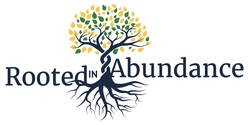|
10/7/2023 0 Comments Rooted in Abundance: LandA conversation between the Rev. Sabeth Fitzgibbons and the Rev. Rachel Taber-Hamilton.
When you think about being rooted, what comes to mind? Where we are, our place on land, is important to our spiritual groundedness, our connection to spirit-filled natural resources. We are part of a larger family of kin that includes all that God has made and reaches beyond the cosmos. Our kinship places us in relationship that is about mutual responsibility to care for one another. How do you understand abundance? We have everything we need. Are we doing everything we can to live in reciprocity, within an understanding that we are mutually responsible for one another and are called to live within a cultivating relationship with our environment and all live within it? Stewardship is asking the question, “What do we need to grow to continue to be in good and right relationship, in recognition of our kinship with all that is, in which we all thrive?” What image comes to mind when you hear the phrase Rooted in Abundance? I think of a beautiful image of the tree of life in aboriginal art. The image shows the relationship of being in a circle where animals and plants, people, land and air and water are all interdependent. Wisdom and care for eight generations, including past, present, and future, inform decisions and stewardship in a reciprocal relationship. What is it that grounds you? Place, context, environment, communities, Creator, the community I am serving. Wherever the Creator has put us is where we are in spiritual relationship. It is often said, “Wherever you go, there you are.” I would add, “Wherever you go, the Sacred is there.” What role does gratitude play? Gratitude is a spiritual practice. Indigenous elders are giving thanks all the time: “Thank you, Creator, for the gift of the cedar tree.” And then thanking the cedar tree for the gift it gives. Gratitude for our gifts invites us into community, and thus into responsibility for the flourishing of our community, which is our kinship with all of creation. If we put all this together, what does being rooted in abundance look like for you, in your context? It’s a circular understanding. All community is responsible for each individual to nurture a sense of being meaningful and valuable. And every person has responsibility for meeting the needs of the community. Questions for Reflection: What does being rooted in abundance look like for you. The Rev. Sabeth Fitzgibbons is the rector of Trinity Episcopal Church, Seattle, WA. The Rev. Rachel Taber-Hamilton, a Shackan First Nation member, is the rector of Trinity Episcopal Church, Everett, WA, and the vice-president of the House of Deputies.
0 Comments
Leave a Reply. |
St. Michael's Episcopal Church News ItemsNews for St. Michael's and the Episcopal Diocese of San Joaquin Archives
July 2024
Categories |
Search by typing & pressing enter


 RSS Feed
RSS Feed
